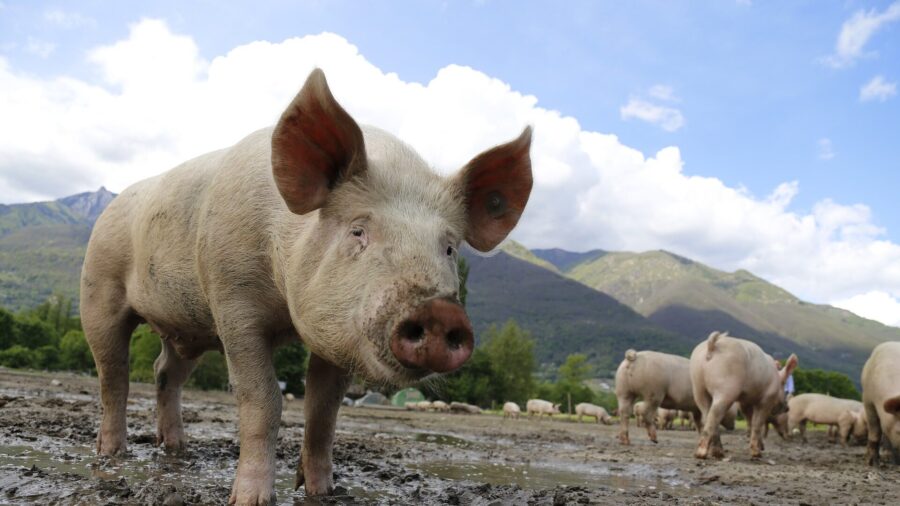Surgeons Just Put A Pig Heart In A Human Being, And It’s Wild
There's a pig heart in a person!
This article is more than 2 years old

It may come off as funny or maybe even bizarre, but it has the potential to save the lives of countless patients who would otherwise be unable to receive life-saving surgery. On Friday, January 7, over the course of eight hours, surgeons at the University of Maryland School of Medicine successfully transplanted a genetically modified pig heart into a human patient. The patient could still ultimately reject the new organ, but so far he’s doing well according to a report from Endgadget.
The experimental procedure was approved by the Food and Drug Administration on compassionate grounds. The 57-year-old patient, David Bennett, had run out of options. His son Dave Bennet, Jr. told the Associated Press that his father was ineligible for a human heart. In a statement made a day before the pig heart surgery, Bennett said, “It was either die or do this transplant. I want to live. I know it’s a shot in the dark, but it’s my last choice.”
As of Monday — three days after the transplant — Bennet was breathing on his own, according to the AP. Regardless, he was reportedly still connected to a heart-lung machine to give support to his new organ. Doctors will be monitoring Bennett’s heart closely for the next few weeks, as it’s still possible he could reject the pig heart.
Endgadget notes that this isn’t the first time doctors have attempted to use an animal heart as a viable heart transplant option. The site points out the famous case of Stephanie Fae Beauclair — aka Baby Fae — who was born with hypoplastic heart syndrome, which rendered her body incapable of properly circulating blood. In 1984, doctors grafted a baboon heart into Baby Fae and she survived for 21 days after the surgery, before her body ultimately rejected the animal heart.

According to the New York Times, what may hopefully prove to be the crucial difference between David Bennett’s case and earlier ones like Baby Fae’s are a number of new technologies. With a combination of gene editing and cloning, scientists have been able to genetically modify pig organs less likely of being rejected by humans. In the case of the pig heart transplanted into Dave Bennett, the organ underwent a total of 10 genetic modifications including the inactivation of a gene known for the potential of human rejection, the inactivation of a growth gene to make sure the heart didn’t keep growing once inside the patient, and the insertion of six human genes into the organ to make the heart more tolerable to a human.
If the transplant of the genetically modified pig heart into Dave Bennett proves successful and Bennett doesn’t reject the organ, the potential impact for the medical field can’t be understated. Dr. Muhammad Mohiuddin, scientific director for the animal-to-human transplant program for the University of Maryland School of Medicine told the AP, “If this works, there will be an endless supply of these organs for patients who are suffering.”
However, while he also sounds optimistic, telling the New York Times that the surgery marks a “watershed event,” Dr. David Klassen — the chief medical officer of the United Network for Organ Sharing — sounds a bit more cautious. He says that while this could ultimately lead to big changes in how doctors treat organ failure, that nothing will happen overnight. “It takes a long time to mature a therapy like this,” Dr. Klassen warned.












